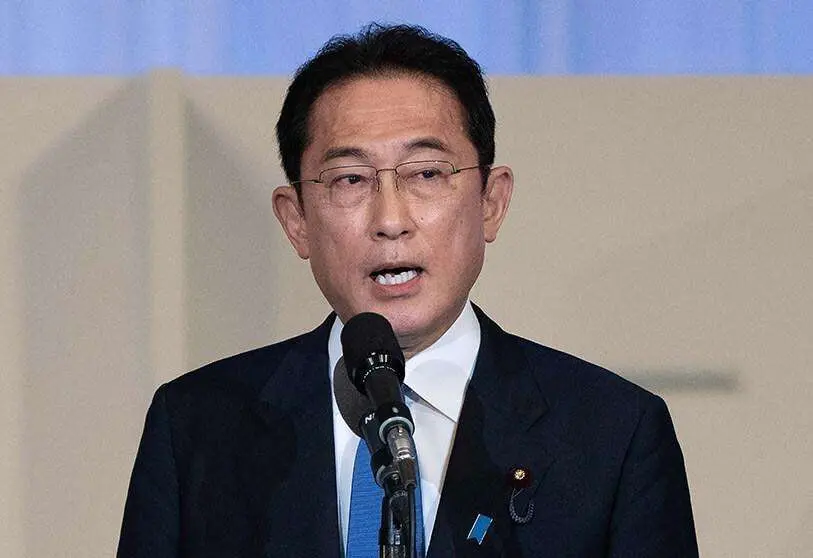Japan seeks recovery

When you put a lot of fuel in the engine, it can either run faster or it can flu. For years the debate on how to revive the Japanese economy has been stuck in this dichotomy, without the engine ever reaching the desired cruising speed.
With the arrival in power of the new prime minister, Kishida Fumio, the proposal to flood a stagnant economy with yen has been revived. Perhaps it was this election promise that allowed him to keep his party, the Liberal Democrats (LPD), in power despite the gloomy expectations that hung over it after his predecessor Suga's brief period at the helm of government. In search of a way out of the impasse or even the economic downturn accentuated by the pandemic, the new government has already announced the largest yen injection in the country's economic history. More than 55 trillion, the equivalent of about 430 billion euros, or 10 percent of Japan's GDP. The government expects to achieve an economic revival of around 5.6 per cent.

There is nothing really new or original under the Japanese sun, but a follow-up to the formulas adopted by both Biden in the United States and the European Union to revive with large public investment the battered economies left by both the pandemic stalemate and growing Chinese competition in all markets. But perhaps because it is the last of the big players to make a move, it comes at a time when analysts are beginning to fear that the injection of more money in a highly inflationary situation will have a certain counterproductive effect by further heating up the economy. In the last investment package to alleviate the pandemic, 30 percent was left uninvested. And in this one, the actual investment in public works, considered the most effective way to promote economic growth, is not as large. Part of the money will go to direct aid to disadvantaged families, young people and businesses. The most critical analysts believe that these cheques end up in bank savings accounts with little impact on the general improvement of the economy.
Despite these and other criticisms, the Japanese government believes there is no other way forward, in line with what world economies of its size are doing. "We must break the impasse", is the slogan, which has already led to the stimulus packages of Sino Abe's long term in office and his "Abeconomics", which, if they did not lead to a major revival, at least enabled Japan to avoid being left behind in the concert of the major economies. After all, in the third quarter of this year, its figures were as red as its flag. What the government officially wants, especially by relaunching investment in healthcare, is to "give a sense of security and hope to the Japanese people", who saw the option of stimulating the economy through the Olympics remain a mere gesture and a lot of frustration.

The Conservative Party government is also aware that, despite having won an election that promised to go against it, the future may hold some serious surprises. Against the odds, it won the elections by losing only 15 seats in parliament, so it has a stable majority to make these and other reforms. The opposition is also down. Who took the missing votes? It will no doubt sound familiar that the party that won those seats is populist and regionalist. The same tendency as in other parts of the world, and which is based on the discontent of the population. The so-called Japan Innovation Party tripled its seats in the House from 11 to 41. Anarcho-populist in nature, its electoral base is limited to the area around Japan's second largest city in terms of population, Osaka.
The emergence of this alternative group is a symptom of the erosion of the classical political groupings, but especially of the lack of solutions to the pandemic and the stagnant economy for years, and the lack of visible signs of renewal. Although Japan has always been regarded as a politically very stable and socially immobile country, polls are beginning to show signs of general weariness. In the international survey conducted by the US research institute Pew, six countries were identified in which more than half of the population wants "major changes or wholesale reforms of political, economic and health care systems". That list of six is made up of the United States, France, Greece and Italy, along with Spain and Japan. With an eye on public opinion, governments are resorting to "never-before-seen" spending as a solution to general anger and the search for alternatives in all areas. Japan is no longer an exception.









